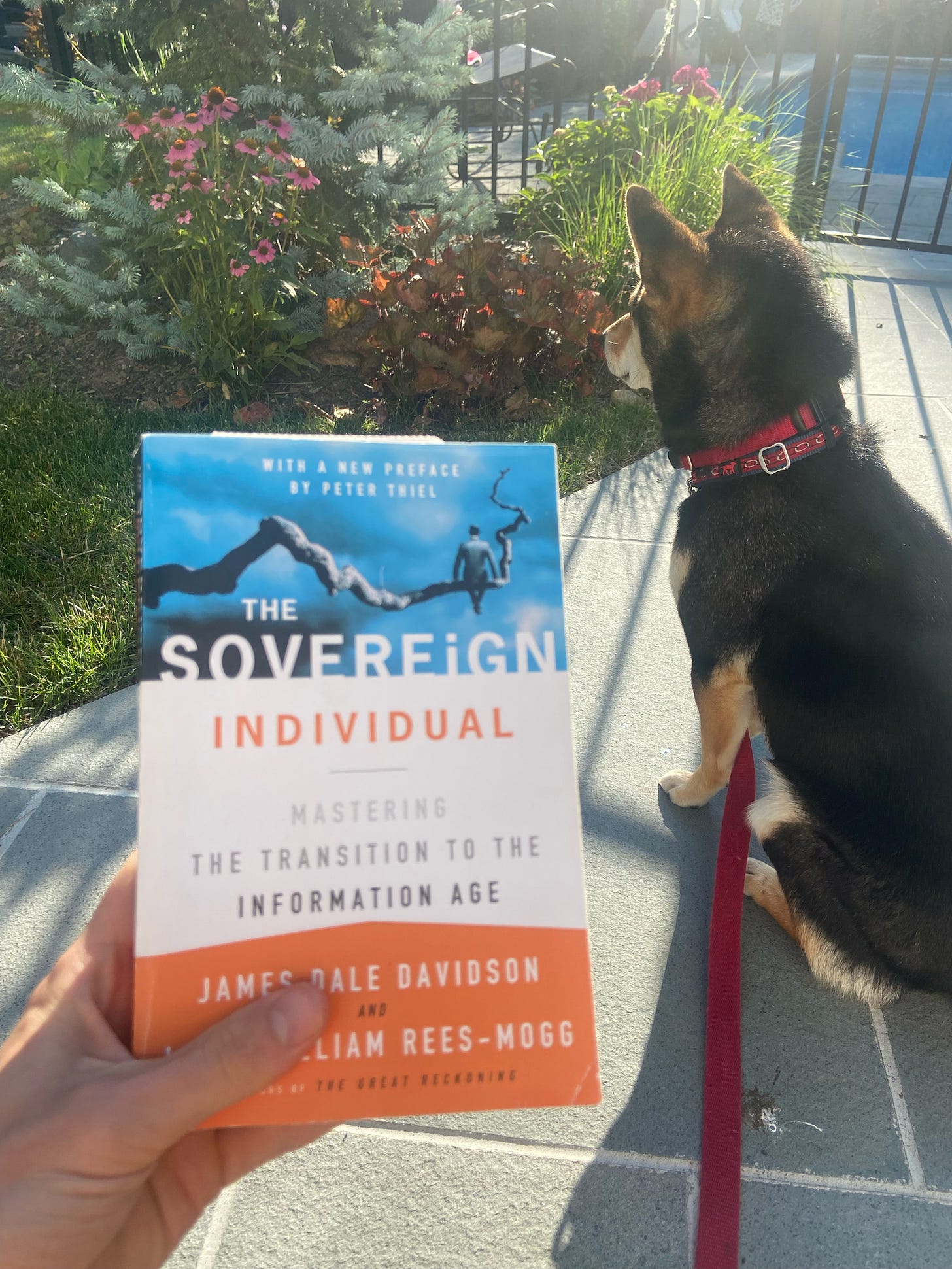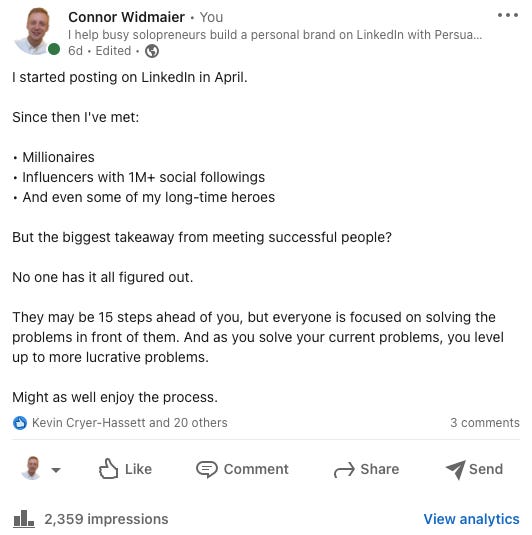The Book that Predicts the Death of the Nation State + LinkedIn Highlights
The Sovereign Individual
July 14th, 2022: Greetings from Long Island, New York.
This week I went swimming at Robert Moses State Park with Brother Kurt and began babysitting a family friend named Patrick (we call it Camp Connor).
It’s great fun! Patrick and I read books and hand-copy sales letters in the morning, then swim, play Wii or find other activities in the afternoon. Fantastic summer job.
Fascinating Book I’m Re-reading:
“The Sovereign Individual”
Last Friday, I was on a call with Charlie Rogers of Alibra Consulting. Our conversation reminded me of this book.
The Big Idea:
The authors, writing in 1997, believe we are entering a new stage of history:
The Information Age
Before the “Information Age,” we had:
Hunting and gathering societies
Agricultural societies and
Industrial societies (modern nation-states)
But now, the authors boldly claim:
“Faster than all but a few now imagine, microprocessing [information technology] will subvert and destroy the nation-state, creating new forms of social organization in the process. This will be far from an easy transformation.”
The authors compare the modern welfare state with the medieval Catholic Church:
Corrupt
Bankrupt
Unpopular
Antiquated
And once the printing press came along, there was a domino effect that ended the Catholic Church’s stranglehold on society:
The Bible could be printed in vernacular
ending the Clergy’s monopoly on “Biblical Truth.”
Luther’s 95 Thesis could be printed and distributed
The Protestant Revolution
And ultimately, the Brutal 30 Years War
Interesting side note:
To this day, most German families can only trace their ancestry back to the end of this brutal conflict. (Because so many Churches, along with the family records, burned down)
Might we be witnessing a similar turbulent transition period due to the internet revolution?
Thought Provoking Quotes (First 2 Chapters):
“It is a face of human nature that radical change of any kind is almost always seen as a dramatic turn for the worse.”
“You must understand and prepare for such unpleasantness. A series of transition crises lie ahead.”
“The greatest resentment is likely to be centered among those of middle talent in currently rich countries. They particularly may come to feel that information technology poses a threat to their way of life.”
“The more apparent it is that a system is nearing an end, the more reluctant people will be to adhere to its laws.”
More from the Book (optimistic):
“The Information Age will be the age of upward mobility.”
“You will no longer be obliged to live in a high-tax jurisdiction in order to earn a high income.”
25 years later, we have the proof:


The book is incredibly contrarian.
And despite some incorrect predictions (the authors were big on Y2k, and missed the rise of China), they’ve gotten many things right so far.
Things the authors predicted (in this book and previous):
The invention and proliferation of Cryptocurrencies
The fall of the USSR
1990 downsizing movement
Rise of militant Islam to displace Marxism as the “principle idealogy of conflict with the West.”
Predicted an upsurge of terrorism in the US (Pre 9/11 or Oklahoma bombing)
The decline of the Japanese Stock Market
Increased volatility of violence (Think subway pushers, etc.)
If these ideas are interesting to you, you’ll love this podcast with Balaji Srinivasan:
Balaji Srinivasan on Bitcoin, The Great Awokening, Reputational Civil War, and Much More
(Show Starts a 3:15)
+ My Best LinkedIn Post this Week
Why it worked
Moment-in-time opener
Authority by association
“Folk wisdom”






